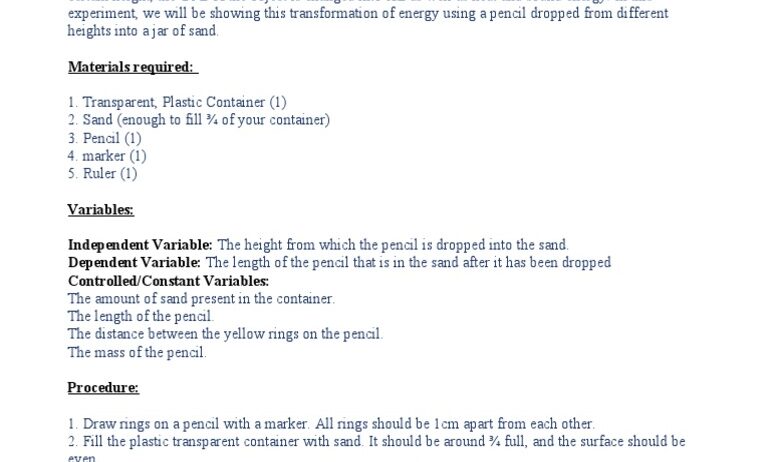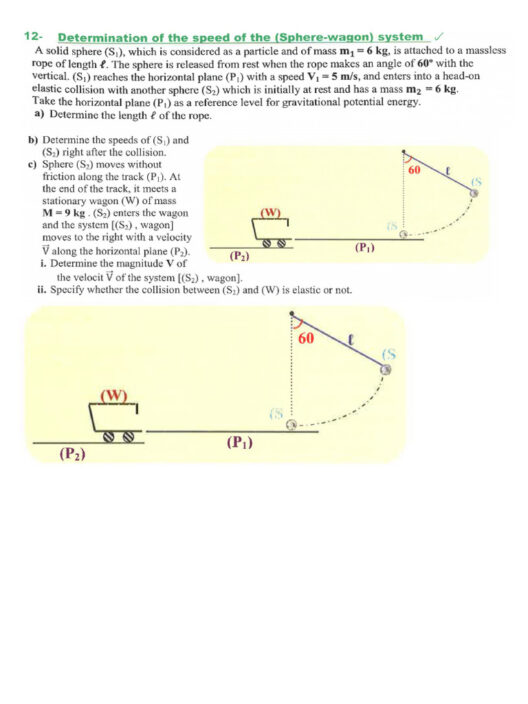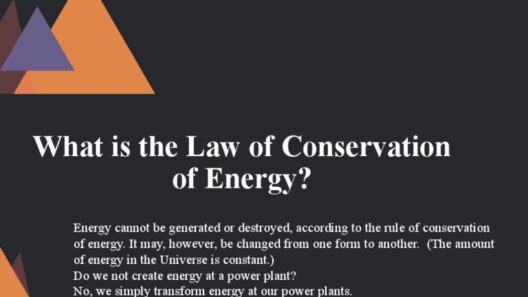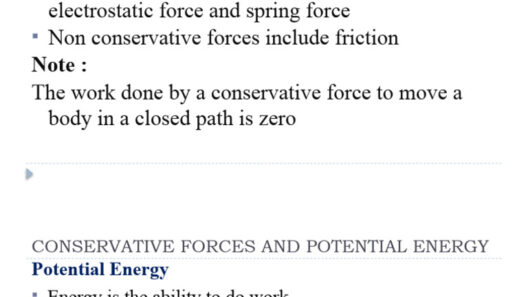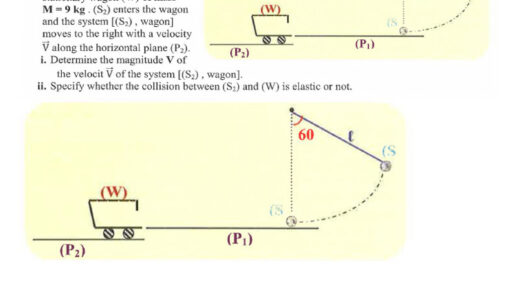The law of conservation of energy is a fundamental principle in physics, asserting that energy cannot be created or destroyed, only transformed from one form to another. This immutable law underpins much of our understanding of the natural world, influencing disciplines ranging from thermodynamics to quantum physics. It is inevitable, then, that the interrogation of such a cornerstone of scientific theory, particularly the tantalizing question of whether this law can ever be destroyed or violated, provokes profound intellectual discourse.
To distill the essence of this inquiry, one must first explore the foundational principles of energy itself. Energy manifests in various forms: kinetic, potential, thermal, chemical, and nuclear, among others. Each of these forms can interconvert through myriad processes. For example, potential energy is converted into kinetic energy when an object falls, or thermal energy is generated through chemical reactions in combustion. This interplay is governed by the conservation law, which provides a framework for predicting outcomes in physical systems.
The theoretical underpinnings of this law stem from the first law of thermodynamics, which formalizes the conservation principle in a closed system. In practical terms, this implies that the total energy of an isolated system remains constant. However, exploring the boundaries of this law leads to the contemplation of concepts such as closed versus open systems, and the implications of thermodynamic equilibrium.
In a closed system, the law of conservation of energy holds steadfast; energy can migrate between forms but the overall quantity remains unchanged. Conversely, an open system exchanges energy with its surroundings. For instance, consider the Earth, which is not an isolated entity; it receives energy from the sun. Gravitational fields and interactions with celestial bodies can also impart energy to or withdraw energy from systems. Such dynamics raise essential questions regarding the uniform applicability of the law across varied contexts.
However, even within the realm of established physics, anomalies arise that challenge the rigid interpretations of energy conservation. Quantum mechanics introduces peculiarities, such as virtual particles appearing and disappearing in a vacuum. These ephemeral entities momentarily exist in a state that seems to contravene traditional energy accounting. Nevertheless, they do not violate the law but rather operate within the probabilistic framework of quantum field theory, suggesting that while energy may transiently exhibit behaviors that challenge classical interpretations, it does not annihilate the conservation principle.
Examining cosmological perspectives further complicates the discourse on energy conservation. The Big Bang theory, for example, posits that the universe originated from a singularity, a point of infinite density and temperature. As the universe expanded, questions arise about the energy density of the vacuum and how it pertains to the law. The emergence of dark energy, which appears to drive the accelerated expansion of the universe, further complicates the landscape. Does this suggest a loss or gain of energy on a universal scale? The intricate interplay of energy on cosmological scales remains an active area of research, probing the validity of conservation laws in an ever-expanding universe.
Additionally, the notion of perpetual motion machines underlines human fascination with defying conservation laws. These hypothetical machines propose to create work with no energy input, seemingly flouting the first law of thermodynamics. However, machines that claim to operate perpetually cannot exist as they would implicitly violate the law of conservation of energy. Every attempt to design such devices invariably encounters insurmountable flaws or inefficiencies, reaffirming the durability of the conservation principle.
Moreover, environmental implications arise from discussions of energy conservation. Renewable energy sources, such as solar, wind, and hydroelectric power, rely on this law for their feasibility. By harnessing energy from sustainable methods, the perpetual transformation of energy is maximized while minimizing waste. The law of conservation necessitates a paradigm shift towards renewable options, underscoring its relevance not only in physics but in addressing global ecological challenges.
The philosophical dimensions of the law of conservation of energy invoke profound inquiries about the nature of reality and existence. Many have mused whether this principle is a mere limitation of human understanding or an immutable characteristic of the universe. The exploration of energy conservation consequently extends beyond scientific parameters into realms of metaphysics and existential contemplation.
Ultimately, the question of whether the law of conservation of energy can be destroyed may reach a conclusive resolution: it cannot. The law, steadfast in its assertion, is supported by an overwhelming body of experimental evidence and theoretical frameworks. Exceptions often serve to refine and deepen our comprehension rather than dismantle the law itself. In examining energy at various scales and contexts, we reaffirm the foundational truth that while energy may shift and morph, its total quantity remains a constant, an everlasting principle governing the natural world.
This theoretical exploration highlights the myriad ways in which the law of conservation of energy intersects with various scientific domains, inviting both critical analysis and innovative thinking. In a world grappling with ecological crises, recognizing and adhering to the principles of energy conservation is paramount in steering towards a sustainable future. The implications of this law resonate through our understanding of the universe and stand as a testament to the unyielding nature of physical laws.



